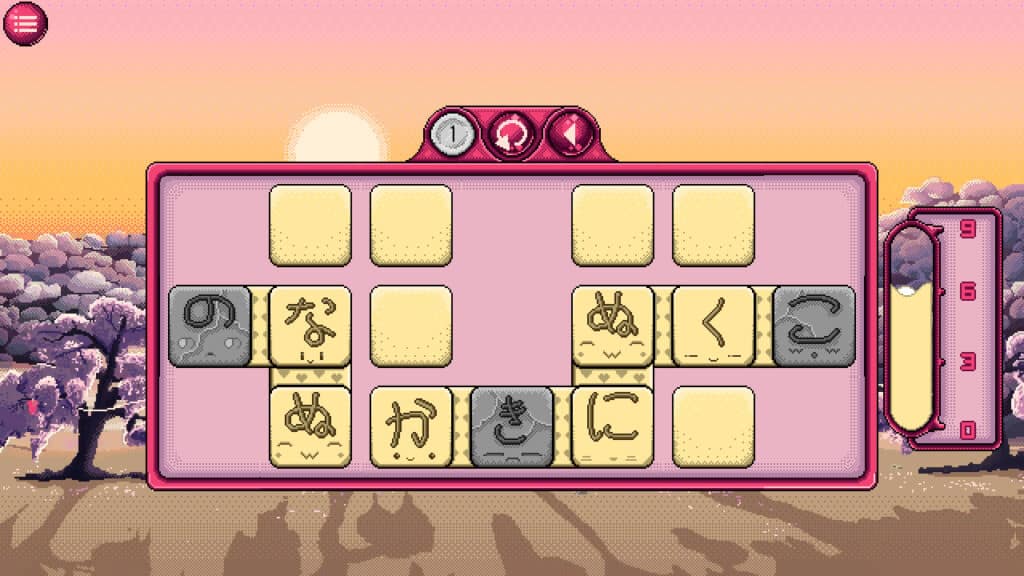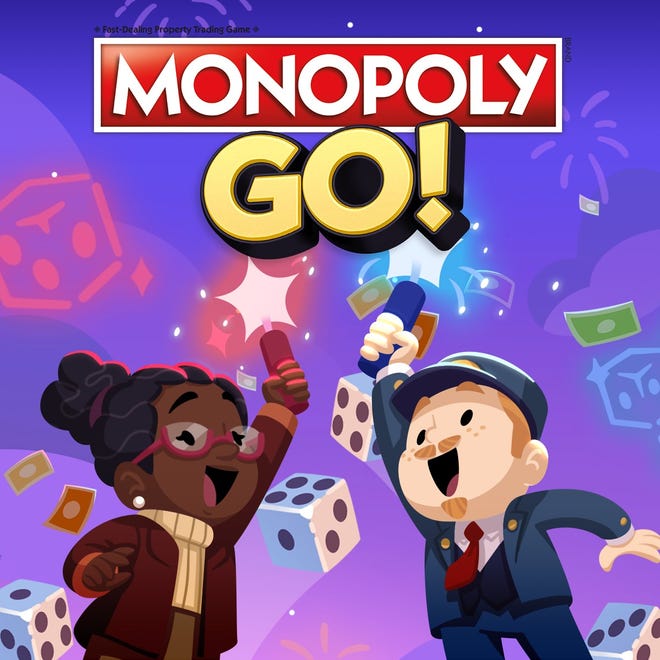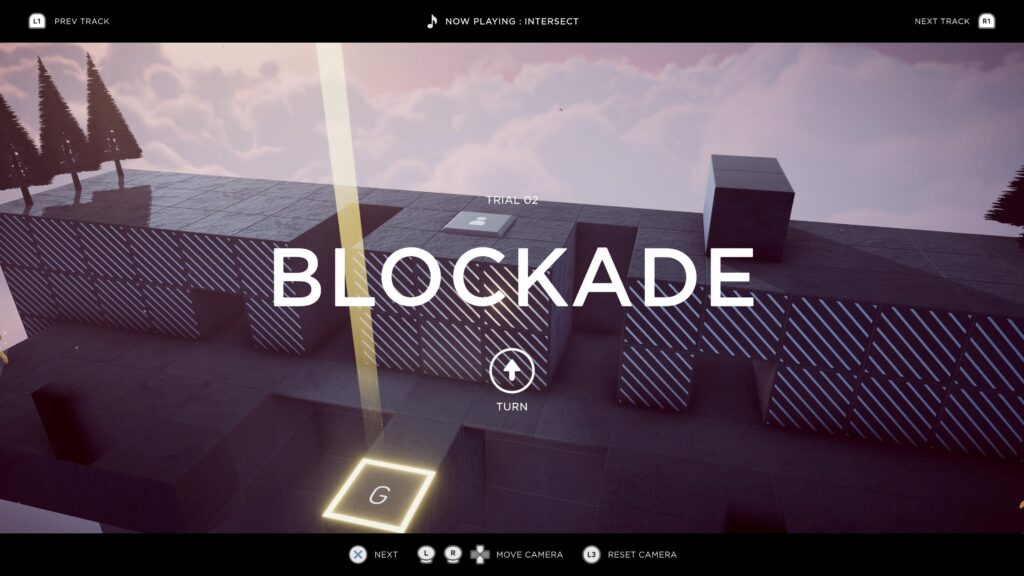Re:Name’s Reminiscence Manipulating Puzzles Are Snappy, Sensible, and Really Standout

After I first began taking part in Re:Name, I used to be sporting inexperienced overalls and I had a cup of tea on the desk subsequent to me.
Or, wait. Perhaps I used to be sporting blue overalls and I used to be consuming cocoa.
Or may they’ve been pink overalls, with a cup of espresso?
That’s the type of twisty, recollection labyrinth you’re taking part in with in Re:Name, a recreation about rewriting reminiscences to grow to be true historical past. You play not as any of the sport’s protagonists, however as a ghostly entity who, when partnered with an individual, provides them the flexibility to alter how issues beforehand occurred just by relating them in numerous methods to listeners. This premise blossoms instantly in Re:Name’s early hours into a pleasant puzzle recreation, the place a person named Javier writes and rewrites his account of breaking into the lair of a prison mastermind, the Toymaker, in hopes that by adjusting the previous sequence of occasions sufficient he can create a present-day scenario that permits him to flee the Toymaker’s clutches.
If that’s a bit complicated, right here’s a really early instance: the Toymaker asks Javier to narrate how he broke into the ability within the first place, and is interrogating him in a room accompanied by a guard sporting a inexperienced uniform. In Javier’s recollection, he can recall that the door to the ability was watched by nobody, or by a blue or inexperienced guard. He may also discover both a gun on the bottom, or a rock. Selecting the gun, after which selecting to shoot the guard causes the inexperienced guard within the room with them within the current to all of a sudden drop useless – he was shot, in spite of everything. Drawback solved, proper? Perhaps not. Although Javier’s account rewrites everybody else’s reminiscences with it, an excessive amount of mucking with actuality will confuse and alarm them, so overly-dramatic actuality shifts might not all the time be advisable in the event you’re attempting to get out of a sticky scenario. Fortuitously, in the event you fail the situation (Toymaker will get clever to your conduct and decides to place an finish to it…and also you), you simply strive once more, with the sport conveniently skipping over dialogue you’ve seen earlier than so you may check out new variations on actuality even quicker.
That’s the opening of Re:Name for you, however the plot is a heck of a twisty one. It’s half crime drama, half spy thriller, and half inner journey of a younger man named Bruno Gallagher who struggles with becoming right into a world that doesn’t see him as definitely worth the time of day. The music and visible design make for a bombastic visible expertise too, with snappy cuts from scene to scene giving it virtually a actuality present really feel all through the recall puzzles. Although it’s a reasonably brief recreation – about six hours max – Re:Name manages to pack loads in. It sadly frontloads its greatest recollection puzzles a bit, however Bruno’s story had a surprisingly private payoff within the midst of all of the thermal lasers and homicide plots that made his journey value seeing all over.
Bruno apart although, I used to be hooked on Re:Name from the premise alone. I’ve by no means performed a recreation earlier than that handled puzzling over reminiscence in fairly this fashion, and in keeping with creator Matias ‘Matian69’ Schmied, the standout mechanic was on the coronary heart of his need to make the sport. Re:Name is Schmied’s second recreation as an impartial creator – he was beforehand working at Argentinian studio Avix video games, however left to go indie and launched his first solo recreation, Evan’s Stays, in 2020. The thought for Re:Name was truly born out of Schmied’s struggles with Evan’s Stays, and his problem getting viewers consideration on the sport with out “some loopy, distinctive mechanic or method to play.”
“
“Re:Name began out, the idea got here from one in all a number of prototypes that I’ve made. I bear in mind I set myself the purpose to make a number of, very small prototypes with very distinctive methods to play. And Re:Name got here out from a prototype that you just had been in a police interrogation and relying on the way you instructed the police what you noticed, the homicide would change and stuff. And lots of these concepts had been translated to Re:Name chapter 2. After I examined the prototypes, that one, that was the one that folks appreciated probably the most.”
Making one thing distinctive may appeal to consideration, but it surely has its drawbacks too. Schmied tells me that he struggled with Re:Name’s design and mechanics as a result of there weren’t actually any templates of comparable profitable video games to attract from. He may have folks playtest Re:Name, and he did get optimistic suggestions, however he tells me he had a “cloud of insecurity” all through growth as a result of he couldn’t inform if his venture would work out ultimately.
For Schmied, gameplay is king. I ask him about his inspirations, and he factors to Half-Life 2 – not due to any thematic similarities essentially, however due to the methods wherein it guides the participant on what to do with out huge signal posts or hefty tutorials. Schmied needed to do one thing related in Re:Name, and definitely within the methods wherein its early chapters encourage blind experimentation as you recollect your means by totally different occasions to discover a “means out,” he’s succeeded.
Re:Name was largely a solo venture for Schmied, with some gentle freelance assist. But Schmied completed it in simply two years. Spectacular, actually, however Schmied stated the “value” that he paid “was very excessive.” He tells me he didn’t permit himself a lot time to benefit from the artistic course of, and ended up burning out a number of instances – one thing he doesn’t intend to repeat on future initiatives. “I feel if there’s one factor I discovered is, the larger the venture, the extra endurance it’s a must to embody,” he says.
Chatting with Schmied, he’s fairly humble and even self-effacing in regards to the recreation he made, even once I inform him how a lot I loved it. After I ask him what he’s most pleased with, he tells me it’s Chapter 4 – simply probably the most complicated recollection puzzle within the recreation – due to the way in which he managed to nail the “dance” between story and gameplay unfolding. However then he tells me one of many causes he loves it a lot is as a result of he wasn’t in a position to replicate it as effectively in later chapters, saying he felt the ending was “missing.”
“I do not know why,” he says. “I do not know, I wasn’t as artistic when doing that half. I used to be very burned out. So I do not know. But it surely’s fascinating how, I do not know, how creativity works. It’s totally mysterious.”
I counter a bit – positive, the again half of Re:Name is weaker than the entrance, however the general expertise is kind of good, and the emotional payoff of Bruno’s ending made the journey value it for me personally, anyway. And although he’s nonetheless fairly humble about all of it, Schmied falls again on discovering success in folks’s enjoyment of the factor he made.
“
“One of many flaws I feel the sport has, which I agree with among the suggestions from the gamers, is that the sport began out with a promise. This recreation is about shaping reminiscences. After which on the finish, the sport forgets about that slightly bit. And I agree with that…Perhaps the expertise is exclusive, however I type of really feel like I failed a bit. So I do not know. However what does give me pleasure is when folks such as you say, ‘Hey, I actually related with Bruno.’ That to me is a much bigger success than the mechanic, or how distinctive the sport was, or no matter. So I am nonetheless completely satisfied.”
It finally feels a bit unusual for me to share this creator’s less-than-positive reflections on his personal work on this area, which is mostly purely celebratory. However Schmied’s honesty about his craft was compelling, particularly in an business the place advertising and marketing usually compels creators to pretend hype round a venture they may not really feel keen about, no matter whether or not its failings had been theirs or another person’s. No recreation is ideal – in actual fact, the overwhelming majority are simply “okay”. Re:Name, although, I feel is fairly good, and possibly deserves extra reward than Schmied is keen to confess. He made one thing I discovered to be actually distinctive and fulfilling from begin to end. And in the event you give it a shot, you may too.
Rebekah Valentine is a information reporter for IGN. Yow will discover her on Twitter @duckvalentine.



